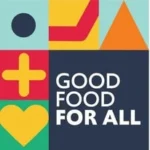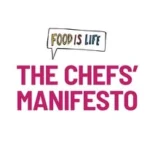“We need to act now to avoid the worst impacts of our efforts to control the pandemic,” says Secretary General Antonio Guetteres in a new policy brief. Without immediate action, the mitigation measures to control the pandemic and its economic consequences could disrupt food systems and cause a global food emergency.
What does the brief say?
The Policy Brief: The Impact of COVID-19 on Food Security and Nutrition notes that the world entered COVID-19 in a vulnerable position with food systems already facing multiple challenges. At the pandemic’s outset, 821 million people were hungry,a global climate crisis and continuing armed conflicts have been undermining food production, and the Horn of Africa has seen an unprecedented desert locust outbreak.
COVID-19 is significantly impacting people’s ability to harvest, sell and buy food globally. While there are sufficient stocks of staple foods, lockdowns are slowing harvests and restricting movement of seasonal labourers who are needed for the upcoming planting season. What’s more, most of the world’s population rely on local markets, which are vulnerable to disruption. “Even in countries with abundant food, we see risks of disruption in the food supply chains,” notes Guterres.
High levels of unemployment, loss of income and rising food costs are also making food less accessible. Food waste has sharply risen as supply chain problems create gaps between farm and market, forcing farmers to dump perishable foods.
The brief estimates that, due to the global recession, 49 million extra people are at risk of falling into extreme poverty this year while the number of people acutely food or nutrition insecure will “rapidly expand”. For each percentage drop in global GDP, an additional 0.7 million children are likely to become stunted.
However, “food has always brought people together and it can again if we “build back better” as it relates to our food systems,” says Agnes Kalibata, UN Special Envoy for the 2021 UN Food Systems Summit.
Collective action for COVID-19 & food systems
The Secretary General calls for three collective actions to protect the food security and nutrition of millions of adults and children.
 First, the world must mobilise now to save lives and livelihoods, with a focus on the most vulnerable. It calls on countries to recognise food and nutrition services as essential, to keep trade corridors open and agriculture supply chains moving, and to implement the necessary protections for these workers.
First, the world must mobilise now to save lives and livelihoods, with a focus on the most vulnerable. It calls on countries to recognise food and nutrition services as essential, to keep trade corridors open and agriculture supply chains moving, and to implement the necessary protections for these workers.
For the world’s most vulnerable groups, humanitarian assistance for food, livelihoods and nutrition should continue unhindered and ensure access to relief packages.
Maximo Torero, Assistant Director General of FAO, highlights the urgent need for data for an effective response – data that identifies who is suffering from hunger and malnutrition, where they are and what type of support they need.
Secondly, there is a need for countries to strengthen social protection systems to safeguard access to safe, nutritious foods, especially for children, pregnant women and other nutritionally vulnerable groups. Due to lockdowns, a record 370 million children are currently without school meals.
Lastly, the SG calls for an investment in the future by addressing shortcomings of food systemsto make them more sustainable, resilient and inclusive. While our food systems are failing us and the planet, our food systems also hold opportunities to re-balance the relationship with the environment and ensure access to safe, nutritious food for all. As such, food systems investment should be a part of an effective COVID-19 response – in the short-term to sustain and improve livelihoods while laying the foundations for a more inclusive, environmentally sustainable and resilient food system for the long-term.
“This pandemic has amplified the importance of a global dialogue to leverage food for health, climate, livelihoods and life,” says Kalibata. “The 2021 UN Food Systems Summit is more important now than ever before, to build societies that are more equal, inclusive and sustainable.”
In 2021, the Secretary General will convene a Food Systems Summit to help rally the international community around accelerated and collective action for people and the planet.



